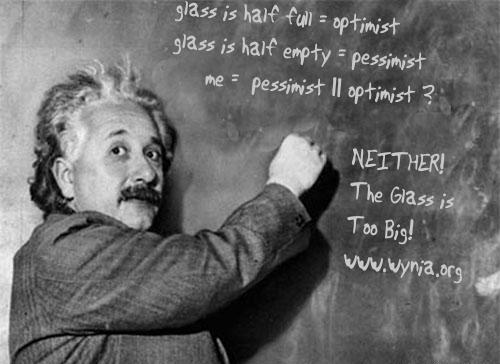The words “negative” and “positive” have to be two of the most overused and unhelpful words in today’s vocabulary.
That’s why I have banned them and encourage others I am close to and work with to do the same.
I see the quest to fill up our days with the “positive” experiences that fill our social media feeds as simply unrealistic and potentially damaging. Think about it this way: most people view positive experiences simply as something they want to happen. Yet the fact is, life will be full of pain and repetition if we only strive for and develop the mechanisms to cope with the good bits.
The beauty comes when we give in, accept and dare I say it—learn to welcome the lessons taught by our most challenging moments.
It isn’t sustainable to turn away from the bad strokes of luck, the misunderstandings, the losses and rejections. These are actually golden nuggets in disguise that help us become more rounded as friends, lovers, family members and business people.
What I’m about to share is one of my most raw moments, which shows how I came to land on this point of view. They were the words “I’m really in love with you but I find the fact you lie so easily really unattractive.” This came from the mouth of my then boyfriend (soon to be husband and father of my children) as we travelled through Africa in my 20s.
I remember my response to his admission so vividly.
I had the choice in that moment to listen to that instinctive voice telling me to react defensively, or to reframe that feeling and try to appreciate his loving openness as a way of helping me understand aspects of my character and value systems I may have lost touch with.
I also knew deep down he was right. An ethos of bullsh*t was what I knew at that point in my life, and it was so entrenched I didn’t even realise I was doing it most of the time. It was behaviour I had modelled from growing up with people around me constantly making things up. I took a long look at myself through my partner’s eyes and it wasn’t pretty.
So I decided to take myself on, which set a chain reaction as I thought long and hard about my behaviours, family, beliefs and priorities. Was I willing to change, and how would I manage it?
It was only when going through this extremely uncomfortable process and committing to turn this part of myself around that I learnt the importance of diving in to the hard parts. They really are the golden nuggets in disguise.
After all, how can we fully savour the moment of achieving a milestone we’ve set ourselves without experiencing and learning to handle the uncertainty of risk? How can we experience the joy of a healthy relationship without embracing the lessons of heartbreak?
When you shift your mindset to accept this, the power of positivity movement starts to look pretty shortsighted.
The experience also taught me the dangers of surrounding ourselves with people who are so preoccupied with the idea of “positivity” that they won’t challenge us when they need to. This doesn’t lead to a pretty picture.
The same lessons have resonated through my experiences of parenthood. I’ve learnt children need a coach, not a cheerleader. I strive to teach my children to accept their flaws and strengths, because I want them to be ready for the moment they are faced with the same type of feedback I got that day in Africa.
I believe much of the Western world has become programmed to avoid pain and discomfort. Yet this is exactly what we need to experience growth. It is simply a part of life.
So, how do we practice gratitude and appreciate joy while not fixating on them to the point of being unable to walk through the discomfort of life?
There is something to be said for leaning on the “bitter-sweet” concept once the pain is less raw to steer us away from spiralling into a funk and toward a place where we can see the experience through a different lens. Rather than getting caught up in the injustice, we can view these moments as necessary and valuable work which helps us develop into fuller and stronger people.
By avoiding these experiences and finding a more comfortable way as opposed to facing them directly and taking on the challenge, we simply go backwards or stagnate. Plus, when you think about it, isn’t it actually the resistance of these experiences that causes most of our pain and discomfort, rather than the experience itself?
The good news is this is something we can control and work on—it is simply a matter of accepting we have moments of tension and joy every day. We just need to shift our frame of reference. It is a balance, and we can’t have one without the other so we may as well look at the tough bits straight on and strap ourselves in for the ride.
This is why the words to frame our choices and thoughts are incredibly powerful and can see us blossom or wilt. That is the reason I don’t use the words “positive” or “negative” anymore and I challenge you to consider doing the same.
Love elephant and want to go steady?
Sign up for our (curated) daily and weekly newsletters!
Author: Pettina Stanghon
Editor: Catherine Monkman
Photo: J Wynia/Flickr












Read 1 comment and reply